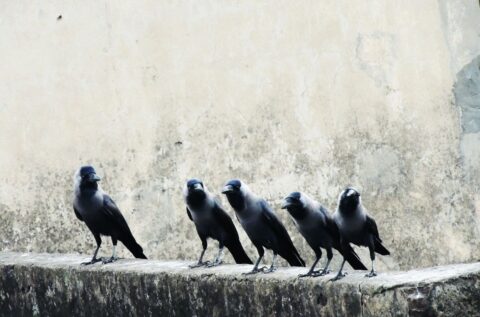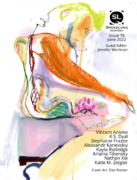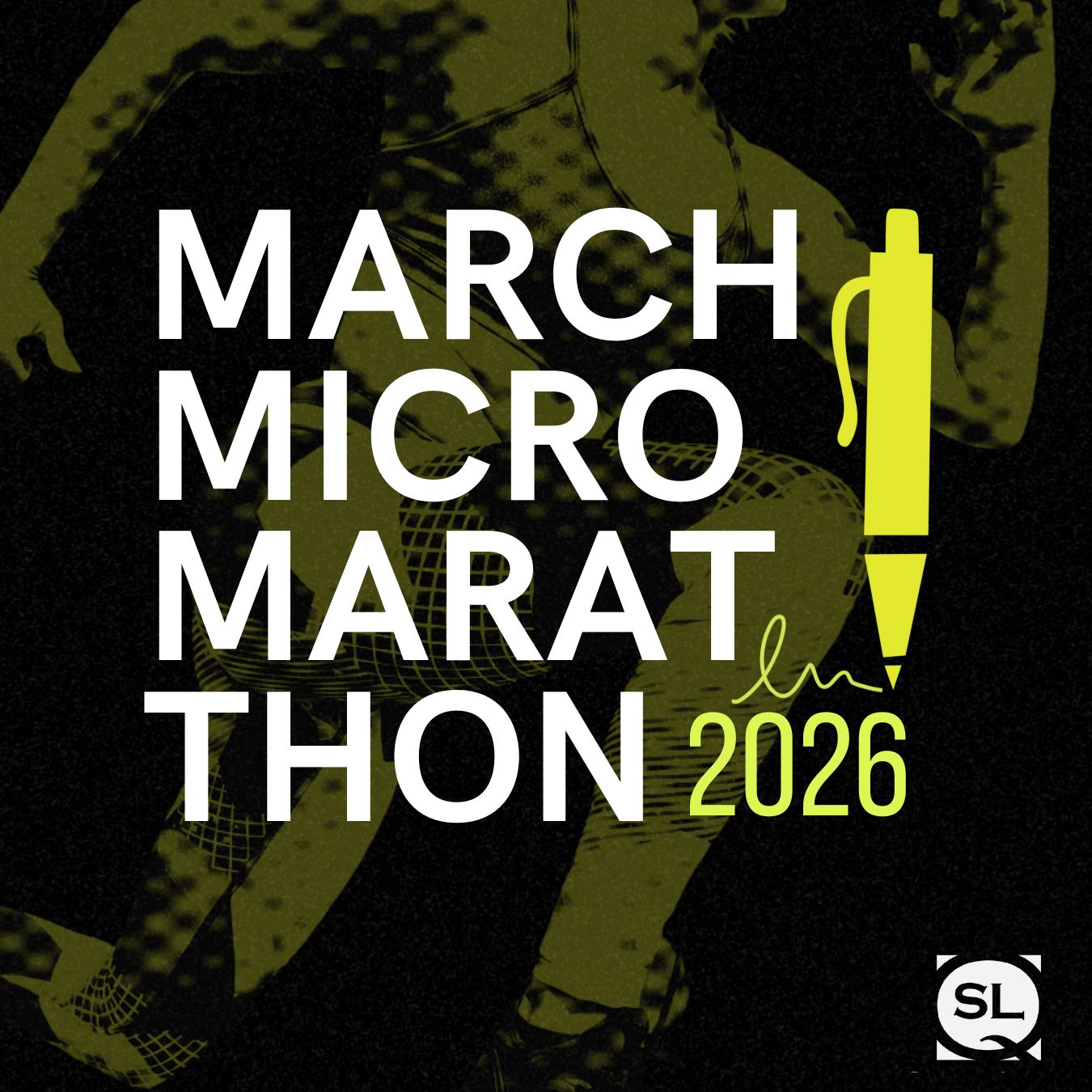(1)
“Do you know why our hands get pruny in the shower?” My nephew, Jack, dimples up at me. He collects facts like gold coins, showing them off when I visit. This trip, I’m at his house for three days: many facts to come. It’s the first time you’re not with me.
“Early humans hunted in water,” Jack answers himself. “It gives us a better grip.” He squeezes his little fist, demonstrating.
It’s one of his more evocative facts. I imagine a prehistoric swamp, ferns everywhere, a Neanderthal man crouching. His chest heaving, damp with survival. He slaps a fish right out of the water. It wriggles, but his grip is sure. Elsewhere in the swamp, large, scaled things undulate underwater, teeth scraping mud.
Vestigial, I’m about to teach Jack. The word is on my tongue. I’m trying to recall anything about the appendix. Instead, I remember you and me at that lake in the Adirondacks, the summer after graduation. Before we had even kissed, before our year in Boston. You couldn’t swim, you’d said. In the shadow of a mountain, I took you in the water and showed you how to move, how to cut the lake with your hands. How to float on your back, your toes poking up, the white bulbs of your knees bobbing. At lake’s edge, cottongrass cropped up from wet rocks and hidden birds chittered. Your hair floated around your shoulders like a black wreath.
In that water, you learned so fast. Later, I’d suspect you already knew how. Not a bit of fear: no gasping, no spluttering. You hung onto me, it seemed, only to bring your grin closer, the little gap between your front teeth peeking out. To smooth a piece of wet hair off my forehead. I kept getting distracted from our lesson by your hand wrapped around my arm. Your grip was sure. You had me. Sometimes by both hands, our chests almost touching. When the water got too cold, our limbs slowing down, we climbed onto the dock and dried off in the sun, your hand still holding mine. On that smooth, worn wood, I thought, Oh boy. I thought, What’s happened. And that night, in the cabin’s sky-blue kitchen, we’d kiss, your hands on me like they’d never left.
“I knew that one already,” I tell Jack.
(2)
On the way to the grocery store, Jack and I are sitting in the backseat. He’s reading a chapter book about a haunted house. I see, out of the corner of my eye, the moment a fact occurs to him. His head swivels toward me and I am in his sights.
“Did you know that time moves at different speeds depending on where you are?” He puts his book down so he can gesture at the car ceiling. He tells me that if you’re higher up, time moves faster; how at the top of Mount Everest, a year is fifteen seconds shorter than at sea level.
“Microseconds, bud,” his father corrects from the front seat. “Fifteen microseconds.”
I’m nodding at all of this. This fact, too, I think I already knew. Because at our height, when you and I were happiest, time passed so quickly. When I think about those years, they are just one long breath. In the park, under rhododendron shade, new tulips swaying in the breeze, I’d touch the pulse thrumming in your neck and the afternoon would pass in a moment. In our bed, you’d laugh at a joke I’d made, and the whole night would be gone before your mouth closed. The days ran around like children and I lost them, one by one.
Then, after you were gone, time stopped. It pooled at my feet. For a while, it was all one day that stretched and stretched. When night finally fell, I worried it wouldn’t end.
“Interesting,” I tell Jack, and ask him how time works in outer space.
(3)
“Did you know crows have funerals?” Jack has a YouTube video pulled up on my sister’s iPad. It’s entitled CROW FUNERAL and has 674 views. When I shake my head, he presses play.
The video zooms in on a dozen crows perched in a tree, before panning out to reveal more crows on the ground. They squawk and gather around a still, feathered body. We watch their beaks point to the sky as they fill the air with raucous noise. They hop around the corpse on spindly legs, opening their throats to the wind. Behind them, sunset floods the sky pink.
Jack is saying something to me about how crows use tools, but I’m focused on the video. I can’t stop watching. It’s not like your funeral, obviously. Where the string quartet played your favorite adagio, the sound swelling and ebbing into the rafters of the church, squeezing my heart right out of my body. In the quiet of the service, I folded my grief up smaller and smaller, like a note in grade school. I tucked it away. This was the ritual we’d all agreed on: wooden pews, incense gathering above our heads, prayer books heavy in our hands. Despite the impending snowstorm, the church was full.
The funeral on YouTube also seems well attended. Crows continue to arrive, flapping in from all directions. The attendees mourn by screaming, holding nothing back. I almost tell Jack I prefer the crows’ ritual: just shrieking. They seem to understand how grief can feel like anger, rising quick and hot behind our eyelids before spilling out. How fear coils inside us at the thought of our own deaths, at how much we don’t know.



 In its third year, The March Micro Marathon will be, as usual, a prompt-a-day whirlwind for 24 days. You’ll exchange drafts of micro fiction, non-fiction, and prose poetry in small groups and gather for a series of online events (all recorded for participants unable to attend live). We’ll finish with 3 competitions, and participants who are not already in SmokeLong Fitness will be invited to workshop with SmokeLong Fitness until the end of April!
In its third year, The March Micro Marathon will be, as usual, a prompt-a-day whirlwind for 24 days. You’ll exchange drafts of micro fiction, non-fiction, and prose poetry in small groups and gather for a series of online events (all recorded for participants unable to attend live). We’ll finish with 3 competitions, and participants who are not already in SmokeLong Fitness will be invited to workshop with SmokeLong Fitness until the end of April!